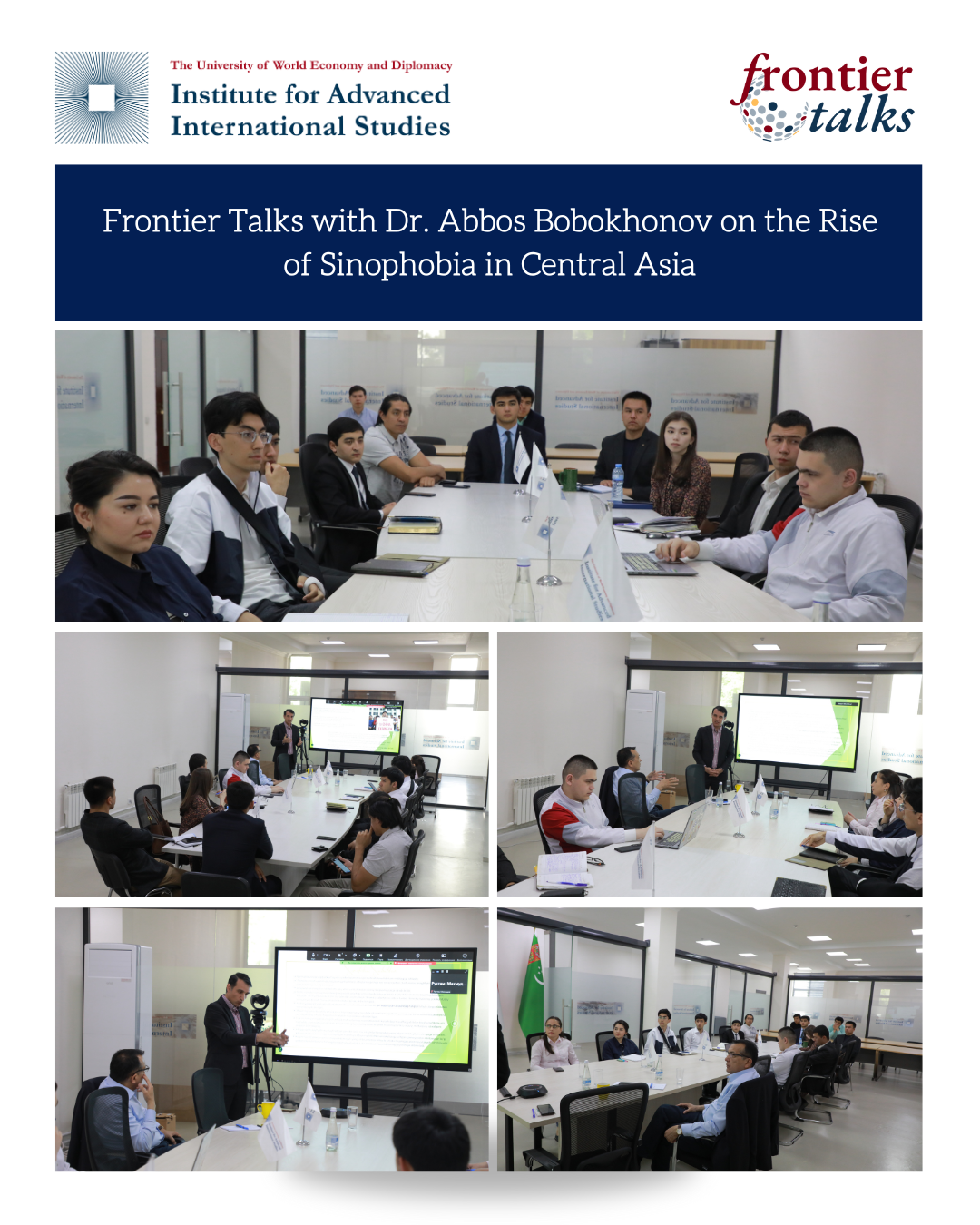
On April 25, Dr. Abbos Bobokhonov attracted a wide audience of students and researchers for his dynamic Frontier Talks session.
First, his presentation delved into the historical and contemporary dimensions of Sinophobia — the rising tide of anti-Chinese sentiment — across various countries of Central Asia. Beginning with a detailed review of historical precedents from the 19th century to the present day, he illustrated how complex legacies of war, colonisation, and migration laid the foundations for enduring stereotypes and public anxieties.
Particular emphasis was placed on recent patterns of China’s economic engagement in the region, especially under the Belt and Road Initiative (BRI), and how this has inadvertently fueled suspicion and resistance among local populations. The discussion was further enriched by a comparative analysis of Sinophobic sentiments in the countries of the region. Dr. Bobokhonov examined the different manifestations and triggers of Sinophobia — from economic grievances to cultural misunderstandings and geopolitical fears — arguing that these sentiments could increasingly influence foreign policy orientations, societal cohesion, and even internal political discourse in Central Asia.
In his concluding remarks, Dr. Bobokhonov stressed the need for nuanced public diplomacy, enhanced transparency in bilateral agreements, and the strengthening of academic research on Sino-Central Asian relations. The seminar concluded with an engaging Q&A session, in which participants explored the implications of Dr. Bobokhonov’s findings for regional stability and international cooperation.
* The Institute for Advanced International Studies (IAIS) does not take institutional positions on any issues; the views represented herein are those of the author(s) and do not necessarily reflect the views of the IAIS.